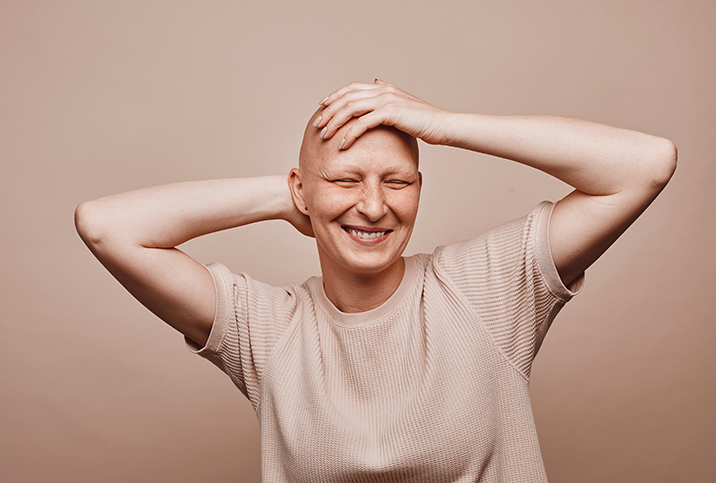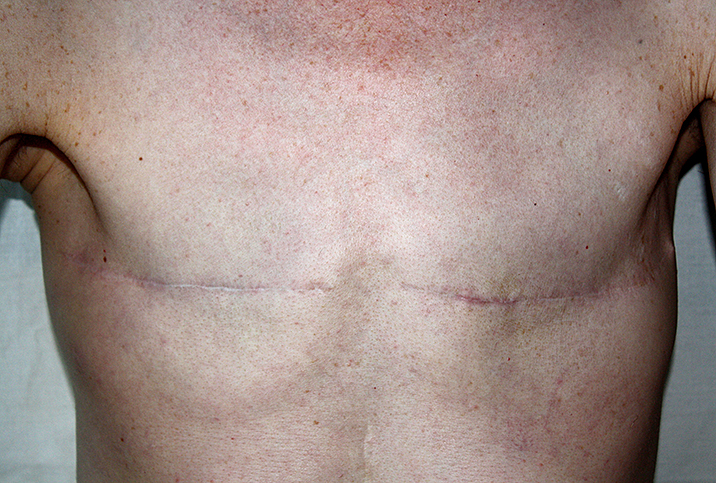8 Tips to Help You Get Through Chemotherapy

Chemotherapy is one of the most effective treatments for breast cancer. And out of all the various ways to treat breast cancer, it may be the most common.
Despite the many methods of administering chemotherapy, there tend to be a few common side effects. Understanding how chemotherapy affects your body will help you manage your symptoms.
Know what to expect and how to prepare for it
Chemotherapy is administered in cycles. Depending on how advanced your cancer is, you may expect a treatment session once a week or once every few weeks. The expected frequency of your visits and total duration of treatment is decided after considering your own personal needs.
Don't hesitate to ask your doctor before you start treatment about any side effects to expect and how to best prepare for them. Chemotherapy is known to affect a patient's physical as well as mental health. You may expect physical symptoms such as hair loss, changes in your nails and appetite, mouth sores, nausea, vomiting and dehydration. It is also possible for treatment to influence your menstrual cycle and fertility.
Keep up with hygiene and self-care
Common symptoms of chemotherapy include hair loss, weight gain and lethargy. Keeping up with personal hygiene and taking time to focus on self-care are ways to help maintain a sense of "normality" in your daily life and manage side effects that may influence how you look.
A good resource is the "Look Good Feel Better" program, which is meant to help people with cancer manage the side effects that influence their appearance. You may also want to consider wearing hats, wigs or scarves to help boost your confidence and protect your scalp from the sun.
It is important to keep up with your oral hygiene to avoid dry mouth, mouth sores and infections, which could affect your teeth and gums. Keeping your mouth clean helps prevent damage and decay, plus it improves the taste of food during treatment.
Find balance between exercise and plenty of rest
It's common to experience fatigue during and after chemotherapy. Getting enough exercise will help keep your body strong and fend off lethargy. Talk to your doctor about implementing a healthy amount of exercise into your routine as you go through chemo.
While exercise is often recommended to help keep your body healthy and energized during and after treatment, it is also important to get plenty of rest. Having a good balance between rest and activity will help prevent fatigue and keep your body healthy.
Getting lots of rest and avoiding stress can really help manage pain, reduce nausea and maintain your mental and emotional well-being. You may want to try meditation to help get you into a calm mindset or improve your sleeping patterns if you are experiencing insomnia. Listening to soft music, calming sounds and guided meditations as well as reading or watching your favorite movies are all different ways you can relax. Stretching or yoga are practices you can try out while getting in your daily exercise.
Seek support
Keep in touch with your health professionals. Contact them with any questions or concerns you may have about managing side effects. It may also be helpful to reach out to people you know who have been through chemotherapy and get their advice.
You may need some time off while you recover. Family and friends are a great resource to seek out and rely on. Those who care about you will be willing to help you in your time of need. Of course, it's important to remember that sometimes friends and family can't provide all the emotional support you need. That's when it's time to think about talk therapy to help you cope with your mental and emotional health. Ask your doctor about any programs that may be available to you.
Pay attention to your diet
Before you begin treatment, be sure to let your doctor know about any supplements you may be taking and ask them if they can recommend any to help you through chemotherapy. Begin with a healthy and balanced diet before treatment to give your body a strong start. And make sure to drink six to eight glasses of fluids a day to prevent dehydration.
Diet can influence your energy levels throughout treatment and may have to be adjusted to help manage pain if you develop dry mouth or mouth sores. Maintaining a diet that is rich in fruits, vegetables and grains is a good idea.
Your appetite may also be influenced by nausea and a change in your sense of taste. It also isn't uncommon for people undergoing chemotherapy to experience temporary lactose intolerance. Making adjustments in what kinds of food as well as when and how you eat may be necessary to reduce issues with digestion and mouth sores.
Take precautions against infections and illness (as best you can)
Chemotherapy works by attacking cancer cells. Yet, some side effects are often caused by the treatment attacking healthy cells, such as hair follicles, bone marrow and the digestive tract. This can lead to an increased risk of infection, fatigue, illness and bruising. Because of this, it is important to take precautions against illness. Washing your hands often, carrying hand sanitizer, wearing a mask in crowds and avoiding people who may be sick are preventive measures professionals advocate you take.
Communicate with your doctor
Don't underestimate the value of asking your doctor questions before, during and after treatment. Let them know how you are feeling and what side effects you are experiencing. Ask them for recommendations on managing pain, fatigue, nausea or any other side effects you may have.


















